The community engagement program uses theatre and other arts-based activities to raise awareness and initiate dialogue on the sociopolitical and economic issues that affect marginalized communities daily. Savanna Trust’s work has highlighted the plight of farm workers and the issues they face in the workplace, as well as gender-based violence issues, which mainly affect women. Within its arts education program, Savanna Trust facilitates training—through workshops, mentorship, collaboration, and exchange—in acting, playmaking, directing, scriptwriting, and arts management. The organization also produces plays for public consumption and touring. Among its acclaimed productions are Liberation, which is an exploration of post-colonial Africa, and Half Empty Half Full, which focuses on love and marriage while showing how the young are excluded from opportunities by the rich and powerful.
However, theatre in Zimbabwe faces a number of challenges. In an article for the Sunday Mail, Savanna’s director, Daniel Maposa, talked about the serious lack of financial investment in the sector. “Most of the theatre produced for professional circuits is poor theatre not in style but in outlook,” he said. This is due to a lack of resources from the government and the private sector to finance all aspects of theatre, like the set, good actors, good scripts, and good directors, meaning that the productions of local artists suffer as a result.
To help tackle this challenge, Savanna’s operating model involves partnering with other community theatre groups from different parts of the country. These include Berina Community Arts in Kadoma, as well as Baptism of Fire in Karoi Hurungwe, Pungwe Murahwa in Mutare, New Generation in Hopley, Jahunda Community Arts in Gwanda, and Bambelela in Bulawayo.
Art, spoken word, theatre, and music are critical to giving societies avenues to expresses themselves and tell their stories, both internally and to the outside world.
The theatre community in each locale in Zimbabwe is an integral part of the landscape. For example, Berina Community Arts, a non-profit, community-based organization founded in 2011, operates in the town of Kadoma, about 150 kilometers southwest of Harare. Kadoma is ravaged by poor service delivery. The people there live under constant threat of disease: there are no water services, there is poor waste collection, the living conditions—overcrowded, small homes—are abhorrent, and social problems abound. The government has done little to help. In this community, theatre has become a very important avenue for the residents to air their views and educate their peers about how to deal with day-to-day issues and needs.
Berina uses theatre and poetry to engage the community in grassroots efforts around human rights issues, good governance, democracy, peace building, health concerns (including HIV and AIDS), and economic issues. Their productions deal with subjects directly relevant to the common person’s experience, dramatizing their day-to-day struggles—some as basic as how to go to sleep in a tiny room that houses a mother, father, and children. Having witnessed their performances myself, I can attest to their power in gathering the community together and entertaining while educating.
It is quite evident the audience relates to the stories, too. They laugh at themselves through the comedy—seeing parents wrestle over irresponsible use of scarce cash or neighbors involved in petty quarrels—and are repulsed by some of their own actions as they see them played back through the shows—like residents defecating in buckets inside their houses because the toilet system does not have water. Their anguish and pain is evident as they watch the depravity in their lives play out in front of them.

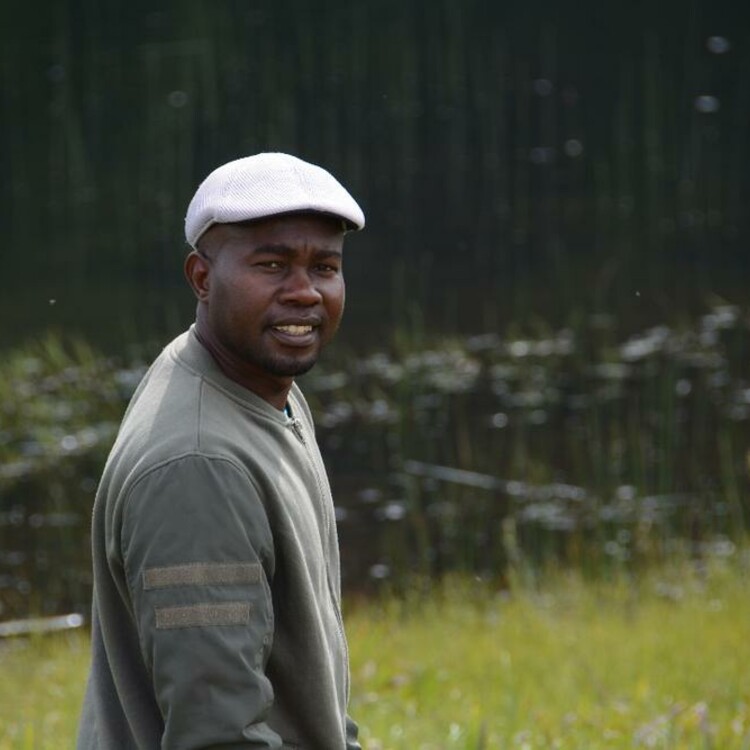
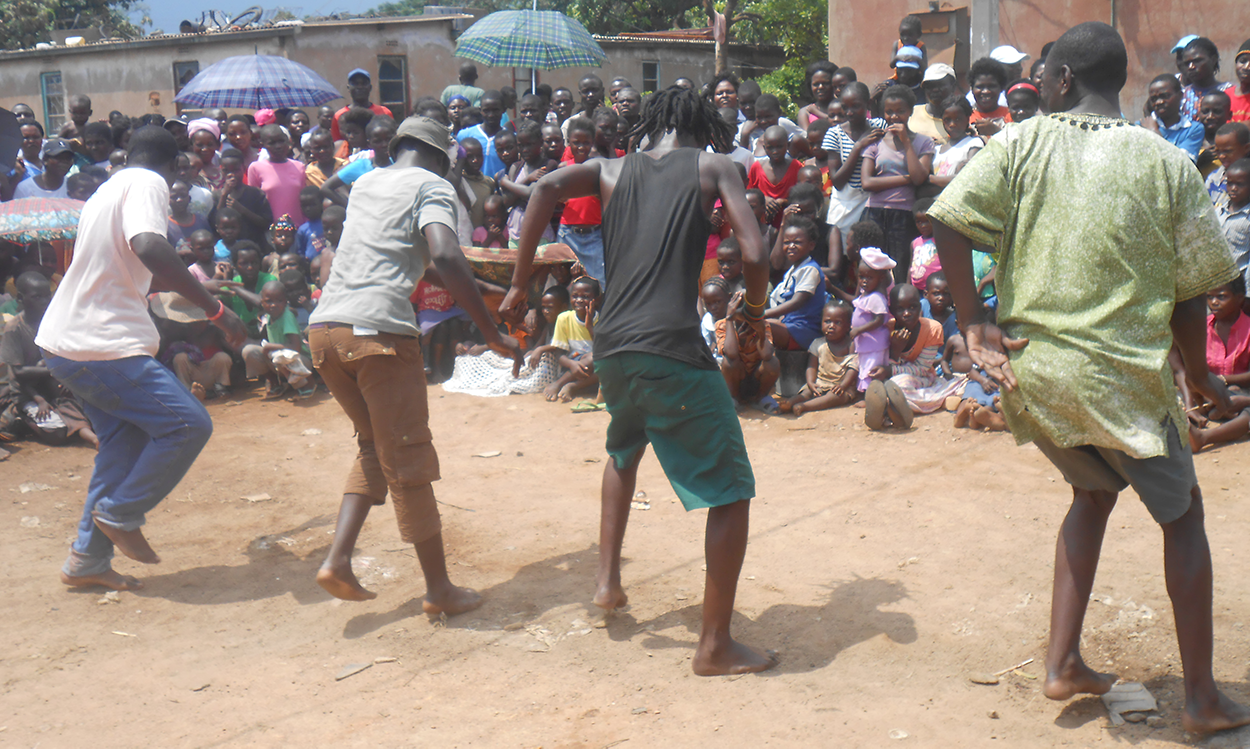
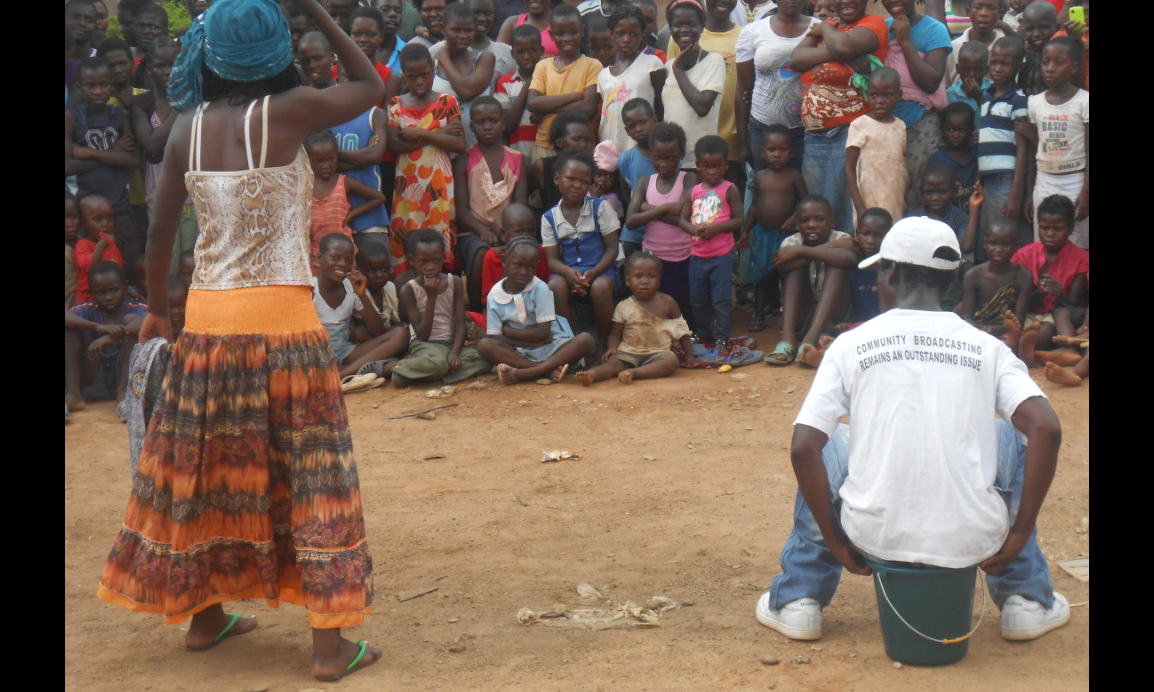
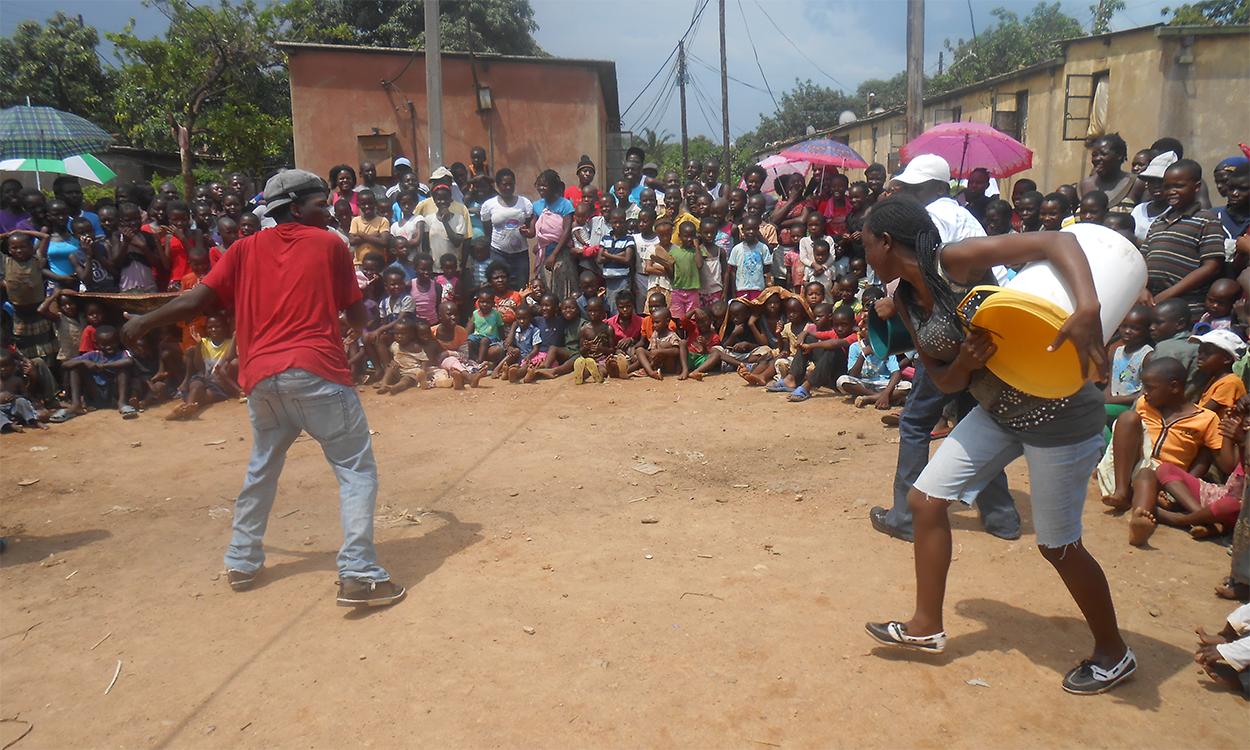
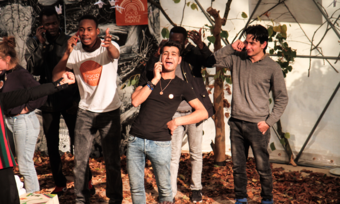

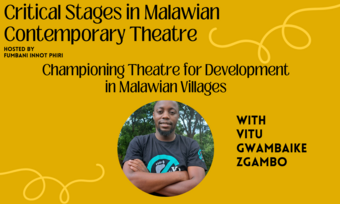


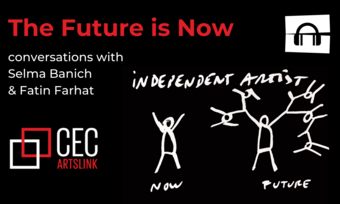

Comments
The article is just the start of the conversation—we want to know what you think about this subject, too! HowlRound is a space for knowledge-sharing, and we welcome spirited, thoughtful, and on-topic dialogue. Find our full comments policy here